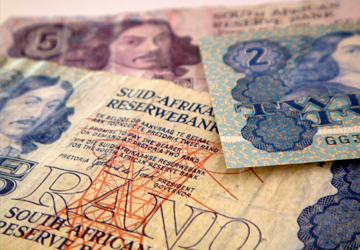 While most investors would think twice before investing in stock futures or even stocks, the thought of putting their hard-earned money in currency derivatives would simply send a shudder down their spine. In a situation where many investors seem keen on avoiding less complicated stock markets, some online trading platforms are offering their customers a chance to try their luck in currency derivatives.
While most investors would think twice before investing in stock futures or even stocks, the thought of putting their hard-earned money in currency derivatives would simply send a shudder down their spine. In a situation where many investors seem keen on avoiding less complicated stock markets, some online trading platforms are offering their customers a chance to try their luck in currency derivatives.
HDFC Securities and ICICIdirect.com have both come out with their own currency derivatives offerings that is, currency futures. ICICIdirect believes ‘equity retail investors can use this opportunity to hedge their stock market risks’. The offering is supported by highfalutin intellectual arguments.
Anup Bagchi, executive director, ICICI Securities opines, “Firstly, for the retail customer, it will be one more source of diversification of an asset class; secondly, active traders will benefit from the low margin requirements and hence high leverage will be a big attraction and lastly for the SMEs and corporates, there will be an avenue to hedge at a low cost and in a transparent manner.”
HDFC Securities is of the opinion that ‘the volatility and multiplier effect would make it a significant trading option for traders. Borrowers can hedge foreign currency loans for interest or principal payments’.
If retail investors are not the target, it beats us why these broking companies would target them through emails, as HDFC is doing. While it may make sense for some corporates to hedge their exposures to currency movements, it is certainly a toxic product for retail investors.
Currency futures are a highly leveraged form of trading product that leave very little margin for error. A few basis points fluctuation in exchange rates can leave your trading account short by thousands of dollars. As such, trading in currency futures requires a highly sophisticated and professional approach and a minute-to-minute monitoring. Is this right for retail investors?
Foreign exchange rates—unlike any other asset class—move depending on various factors like demand-supply, interest-rate parity, capital flows and speculators taking positions. Currency derivatives were first introduced to the country by the National Stock Exchange (NSE) in the form of futures contracts. Apart from hedgers, the currency derivatives market is flooded with speculators and arbitrageurs who take bets on exchange rate movements with short-term profits being the sole motivation for trading. — Sanket Dhanorkar & Ravi Samalad